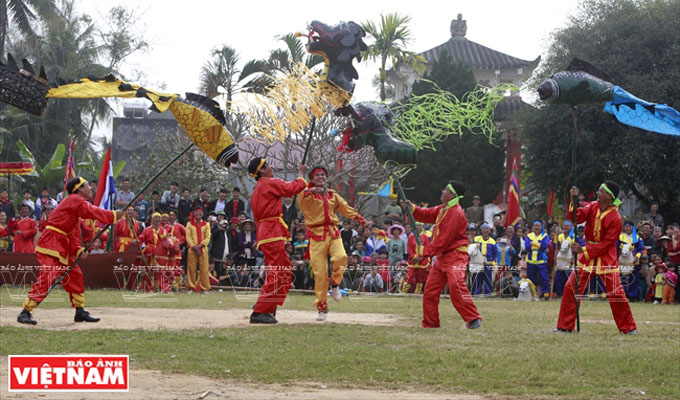Thanh Hoa Province is rich in culture. It boasts not only many historical vestiges like Ham Rong Bridge, Ho Citadel and Lam Kinh Remains, but also many folk games and professional contests from the Ly dynasty, including Tro Chieng.

Tro Chieng is considered the most anticipated festival in Thanh Hoa that has existed from the Ly dynasty so the locals have a saying: “Tro chieng, vat Boc, roi Si /Com dap ke Lo, com thi ke Lao” to highlight the significant meaning of the festival.
According to historical records, the founder of the festival is General Trinh Quoc Bao who served during the reign of King Ly Thanh Tong (1054 - 1072) and is credited for defeating the Chiem Thanh invaders. To prepare for the fight against the invaders who used elephant troops, the general ordered his soldiers to build bamboo elephants to practice with. During the battle, bamboo elephants which were glued with fireworks attached to them were burned, helping to defeat the invaders’ troops.
In the spring of 1068 when the country was peaceful, the king ordered the festival to begin to welcome spring and the martial arts game with bamboo elephants was reproduced. In 1085, General Trinh Quoc Bao retired and returned his homeland in Trinh Xa village in Yen Ninh commune, Yen Dinh district where he handed down the martial arts game to the villagers. However, the game wasn’t played again until 2007.
Now, the villagers in Trinh Xa annually hold the festival from January 10-12 of the lunar calendar on a large scale with many folk games and cultural activities, including an elephant fighting contest. During the contest, each team of four strong men will carry a bamboo elephant which is led by an elder farmer who has mastered the techniques of taming elephants. When the signal is given, the two teams have their elephants fight each other. According to the contest’s rules, the winner will beat the “target” on its rival’s head. After the contest, both elephants are burnt to show the villagers’ gratitude to General Trinh Quoc Bao and their ancestors.